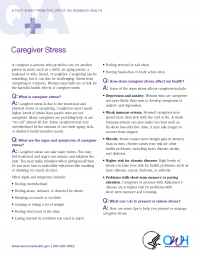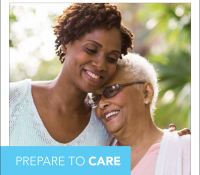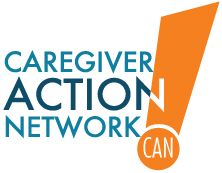Video produced by TEDx Talks
If you are caring for a loved one with an LVAD your life has changed in ways that you could never have imagined. Caregiving is a rewarding yet challenging role. It is such a relief to know your loved one is on the road to recovery. You are probably looking forward to getting back all that heart failure has taken from your lives. However, adjusting to the major life changes that come with caring for an LVAD recipient may be difficult at times. It may seem like you are on a roller coaster ride; there will be good days and bad days. As the caregiver, it is easy to put your needs second to those of your loved one. It is important to be sure to tend to your needs as well, or you may not be able to effectively care for your loved one.
Here are some tips to help guide you on your caregiver journey.
- Establish a routine. At first, the daily care activities surrounding the LVAD may seem overwhelming; maintaining a routine to help you stay organized and focused is key. Schedules or daily routines create stability which is important for your physical, mental and emotional wellbeing. Initially, it may be helpful for you to actually write down your routine to keep you on track.
- Take care of yourself, too. It’s so important to make sure you are staying as healthy as possible. Some ways to help with this are: following a balanced diet, getting regular physical activity(even if it’s just a quick walk), keeping up with regular doctor’s appointments and trying to get a good night’s rest. Spending some time doing things you enjoy, whatever they may be, will help with your mental and emotional wellbeing.
- Encourage independence. Your loved one may always need your help with certain aspects of their care such as dressing changes. However, any tasks or activities they can safely manage themselves should be encouraged. Your loved one will start to regain a sense of control on their road to recovery. Moreover, this will help free you to take more time for yourself and tend to your other responsibilities.
- Stay Connected to friends and family. It is so important to do your best to maintain those relationships that are meaningful to you. They can be a great source of support for you and provide opportunities for socialization. When you can try to plan activities outside of the house. It’s healthy for you and your loved one to spend some time away from each other.
- Ask for help. You will find that most of your friends and family are more than happy to offer their support. Things like running errands, cooking meals or escorting your loved one to doctor’s appointments are all things that can be delegated to friends and family.
Above all, know that you are not alone. There are other caregivers out there who are going through similar experiences. We invite you to visit the Caregiver Forum here at MyLVAD.com to connect with them, share your experiences, questions, advice, and insights.
-->

 Caregiver Stress Fact Sheet from the Office on Women's Health
Caregiver Stress Fact Sheet from the Office on Women's Health
 10 Tips for Family Caregivers from Caregiveraction.org
10 Tips for Family Caregivers from Caregiveraction.org Prepare to Care Guide published by AARP
Prepare to Care Guide published by AARP
